12 Best Remedies to Say Goodbye to Your Dry Cough
By Dr. Vishesh Bharucha +2 more

Get,

to manage your symptom
Get your,


4 Cr+ families
benefitted

OTP sent to 9988776655



You’ve successfully subscribed to receive
doctor-approved tips on
Whatsapp

Get ready to feel your best.

Hi There,
Download the PharmEasy App now!!


Register to Avail the Offer
Send OTPBy continuing, you agree with our Privacy Policy and Terms and Conditions

Hi There,
Sign up on PharmEasy now!!
Trusted by 4 crore+ families

OTP sent to 9988776655



You have unlocked 25% off on medicines




Code: NU25

Comments


Leave your comment here
By Dr. Vishesh Bharucha +2 more
Table of Contents
A cough is our body’s response in defence against irritating or obstructing substances. It helps to keep the airways clear, so we can breathe easily. It is called a dry or unproductive cough when the cough doesn’t produce any mucus or phlegm. Although coughing is a useful reflex, a persistent dry cough is one of the most annoying symptoms one can have. It not only irritates your throat but can also hamper your daily activity.
Although, coughing is usually due to non-threatening causes, a dry cough can also occur in infections like COVID-19. This makes it important for us to take extra care of our throat and respiratory system. In this blog, we will talk about some simple and effective home remedies that can help soothe a dry cough. We will also discuss about the causes of a dry cough and how it is different from wet cough. So, let’s dive in further!
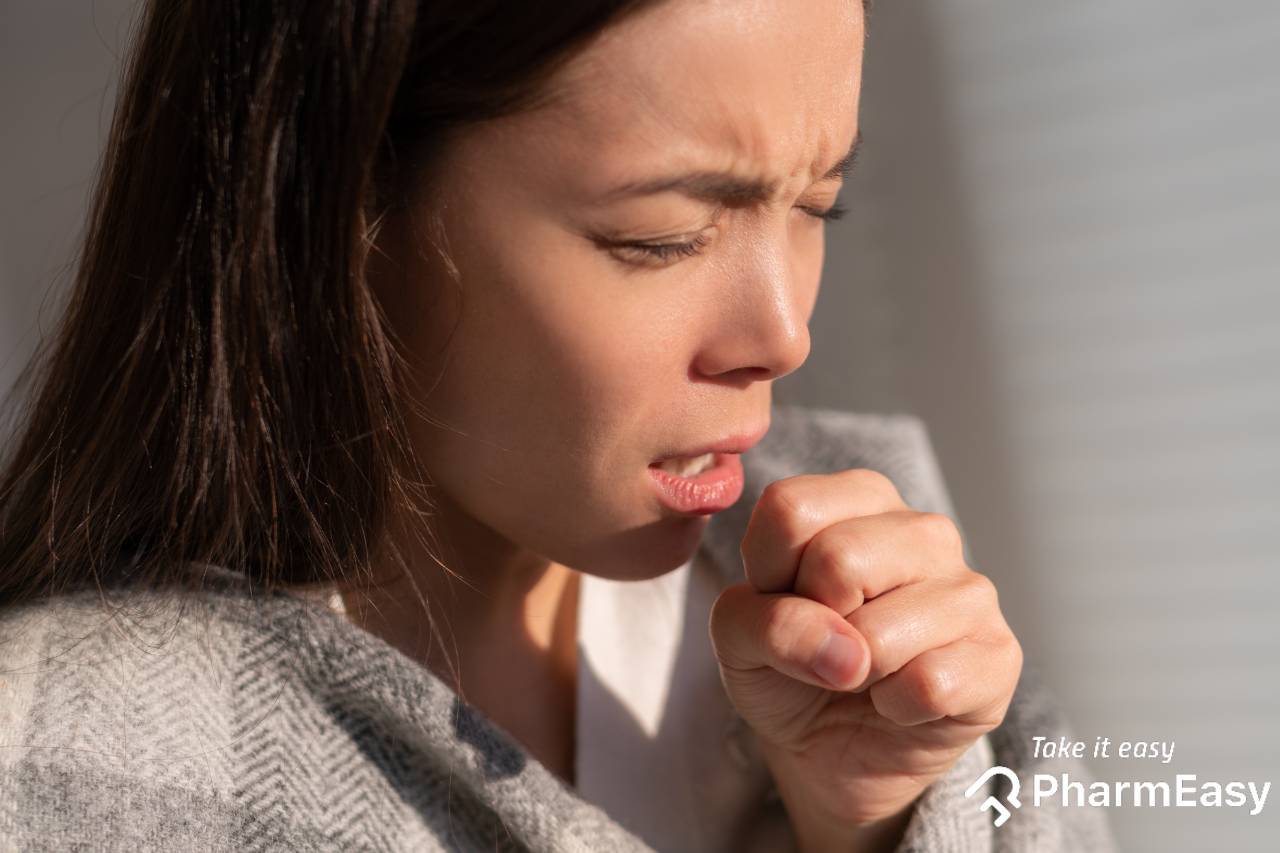
A dry cough can be the result of various factors, and understanding dry cough causes is essential for effective management. The causes of dry cough are as follows1:
It is important to know the underlying cause for a persistent cough for appropriate treatment, yet people may use over-the-counter drugs to get instant relief. While you must stick to your doctor’s advice and not self-medicate, there are some simple remedies you may try at home to manage a dry cough.
If you’re wondering how to get rid of a dry cough, then these are quick and effective home remedies that you can try:

It is important for people with a cough or cold to stay warm and hydrated. A quick and effective dry cough remedy can be drinking hot beverages as these may help relieve your symptoms fast. Warm water, clear broths, herbal teas may soothe a dry cough by moistening the throat, easing irritation, and promoting relaxation. However, immediate relief varies from person to person.

Gargling with salt water is one of the most effective home remedies for managing a sore throat and cough. It reduces the inflammation of the throat and controls the bouts of cough2.
Mix half a teaspoon of salt into a cup of warm water until it dissolves completely. Now, let the mixture cool down a bit and then use it to gargle.
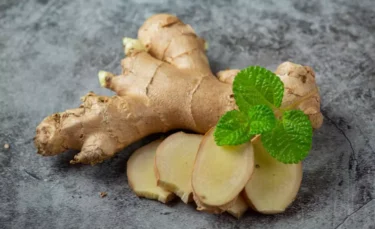
Ginger can easily be found in many teas and even some food items. It is the first home remedy that comes to our minds whenever we think about cough. Ginger contains compounds like gingerol, which have anti-inflammatory, antioxidant, and antimicrobial properties, which may help reduce inflammation in the airways and support the immune system. Its anti-inflammatory properties might help alleviate congestion and irritation in the respiratory tract. There is evidence that ginger may suppress the cough reflex by relaxing the smooth muscles of the airways3.
For those trying to get rid of a dry cough, ginger tea is an excellent option. Adding honey to this tea can make it even more effective for a dry cough.
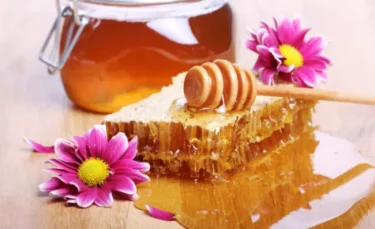
Raw honey is one of the oldest home remedies to manage cough. It helps to soothe your throat and reduce irritation. It has anti-inflammatory and anti-microbial properties that may potentially fight minor bacterial or viral infections4.
You can add 2 teaspoons of honey to a glass full of warm water and drink it once daily. Also, you can use honey as a substitute for the sugar in your tea.
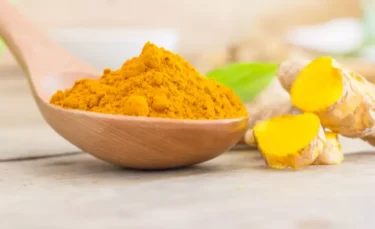
Turmeric is widely known for its antiseptic, antiviral, and anti-inflammatory benefits. It can help your body recover from infections faster. Curcumin, the active compound in turmeric, has anti-inflammatory properties that may help reduce inflammation in the airways, potentially easing symptoms of cough and asthma. Turmeric is beneficial to treat upper respiratory conditions, bronchitis, and tonsillitis too5. However, it is not a primary treatment for these and should not replace prescribed medications.
You can make your regular tea and add half a teaspoon of turmeric into it, or else add it to warm milk with honey and have before sleeping.
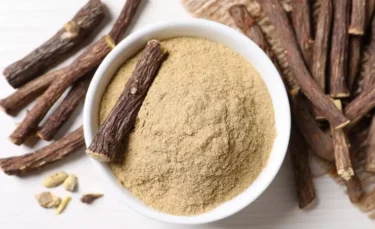
Licorice root, commonly known as Mulethi, has been used since ages in the ayurvedic medicine system. It is known to reduce pain, clear phlegm, and ease cough. Licorice root tea may help to reduce throat irritation and congestion.6
It is commonly available in any grocery shop and can be chewed raw or added to a hot cup of tea.
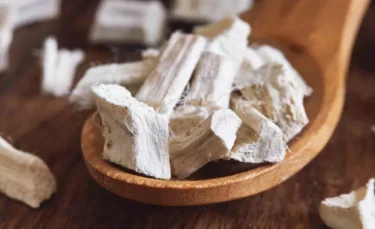
Marshmallow root is another ancient herb that can be beneficial for treating a dry cough. Although more research is needed, some studies7 have suggested its effectiveness in soothing the throat and reducing the irritation caused by a dry cough.
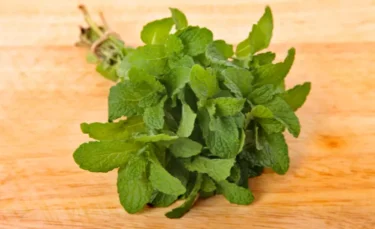
Mint leaves although have a cooling effect can be beneficial for easing throat irritation. They contain a compound called menthol, which may help numb the throat nerves and consequently reduce dry cough. It also helps in clearing the congestion of the throat.
While most studies8 on menthol discuss about inhaling its vapour, you may also consume mint leaves. Just add 3-5 leaves to your tea and boil it for a few minutes before drinking. This can be a quick and effective home remedy for relieving dry cough.

Chilli peppers contain a compound called Capsaicin. This compound binds to pain receptors and causes the burning sensation we feel when we eat spicy food. Initial studies9 have shown that consuming a controlled amount of chili powder (which contains capsaicin) can help desensitize some of cough receptors and thereby control dry cough to some extent. Further research is needed to confirm this finding.

Aromatherapy or using essential oils for healing has several applications. It can be used to ease a dry cough as well. For this, you can add a few drops of eucalyptus oil to hot water and inhale its vapours, although other oils like tea tree and peppermint oil may also be used. Since existing research10 literature has proven the benefits of eucalyptus oil in the treatment of respiratory illnesses, this can be a great home remedy for dry cough.

Using humidifiers can also help ease coughing. Humidifiers keep the air moist, which helps soothe the throat and temporarily suppress the symptoms of dry cough. A study11 has relieved that humidifier can help soothe throat irritation and reduce coughing in people recovering from thyroid surgeries, where the throat may be more sensitive.

Thyme is a herb that has multiple health benefits. It may serve as a natural dry cough treatment as it contains an antispasmodic compound that helps to relax muscles. As a result, regular consumption of controlled amounts of thyme tea can greatly help to soothe the throat muscles and provide long-term relief from constant coughing.
A lot of these home remedies have been scientifically researched and have shown potential benefits for managing a dry cough; however, further large-scale human trials can help corroborate these findings.
While these may be effective for managing a persistent dry cough, it’s important to use them in moderation as they may have some side effects when used excessively. Also, if you have any medical conditions or are on any medications, it’s best to discuss with your healthcare provider before incorporating any home remedy including these in your routine diet.
Also Read: Simple Home Remedies For Dry Throat
Sometimes, the dry cough may be persistent and stubborn and home remedies may not be effective against it. A persistent cough may also be a symptom of serious underlying conditions, such as idiopathic pulmonary fibrosis (IPF), lung cancer, or heart disease, which can worsen if left untreated.
Usually, a persistent cough combined with two or more of the below-mentioned symptoms indicates a more serious issue:
For instance, persistent coughing is a common indicator of IPF, but it is generally accompanied by some other symptoms like shortness of breath as well. Hence, it’s essential to consult a doctor particularly in such cases to understand the cause of a dry cough for proper management.
Also Read: What is Influenza (Flu) & Its Types
A persistent dry cough is one of the most dreadful symptoms one can have. It is usually because of viral infections, allergies or postnasal dripping, but in certain cases, it can be due to some underlying serious medical conditions. Hence, it is always advised to visit your doctor and get a proper check-up done in case of a persistent cough, especially that associated with other symptoms, to rule out any major issues. Alongside, you can try out some effective home remedies mentioned in this blog. While further evidence would be useful, most of these are research-backed for easing an itchy throat and soothing a dry cough. So, these remedies are definitely worth giving a try!
Also Read: Simple Home Remedies For Fungal Infections!
Disclaimer: The information provided here is for educational/awareness purposes only and is not intended to be a substitute for medical treatment by a healthcare professional and should not be relied upon to diagnose or treat any medical condition. The reader should consult a registered medical practitioner to determine the appropriateness of the information and before consuming any medication. PharmEasy does not provide any guarantee or warranty (express or implied) regarding the accuracy, adequacy, completeness, legality, reliability or usefulness of the information; and disclaims any liability arising thereof.
Comments

Leave your comment...

View all comments(3)
You may also like
My mother has suffering with cough and we use many madicine but results is Zero kindly suggest me how to remove cough at home
You are most welcome. Hope you found it useful.
It was very helpful